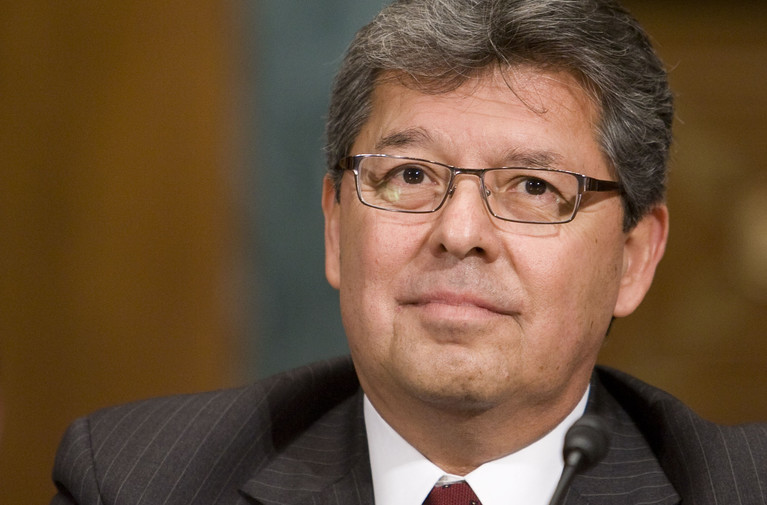‘The Court Has Concerns.’ Judge Probes Racketeering Allegations Against Claims Administrator Angeion
In a significant development impacting class action settlements, U.S. District Judge Vince Chhabria expressed serious reservations about claims administrator Angeion Group’s financial arrangements, ordering the company to disclose its revenue-sharing agreement with prepaid card provider Blackhawk Network. This probe stems from explosive racketeering lawsuits alleging a coordinated scheme among claims administrators and financial tech firms to siphon funds from settlement payouts, potentially jeopardizing major cases like Facebook’s $725 million privacy settlement.
The Judge’s Order: Demanding Transparency on Revenue-Sharing Deals
On August 19, 2025, Judge Chhabria of the Northern District of California issued an order requiring Angeion to submit, in camera (for the judge’s private review), its confidential agreement with Blackhawk. The directive came during oversight of the Facebook privacy class action settlement, where Angeion serves as the claims administrator responsible for distributing funds to affected users. The judge’s phrasing, “The Court Has Concerns,” underscores his unease with potential conflicts of interest that could undermine the integrity of settlement distributions.
This action follows lead counsel’s motion raising red flags after a wave of lawsuits accused Angeion and peers like Settlement Services, Inc., of engaging in racketeering under the Racketeer Influenced and Corrupt Organizations (RICO) Act. The allegations claim these administrators partner with fintech companies to offer prepaid debit cards for payouts, retaining a portion of unclaimed or residual funds—sometimes up to 50%—as undisclosed revenue, effectively shortchanging class members.
Background: Racketeering Lawsuits Targeting Claims Administrators
The controversy ignited in early 2025 with a series of class actions filed in federal courts, marking the first major legal challenges to the claims administration industry. Plaintiffs allege that Angeion and others operate a “racketeering scheme” by colluding with card issuers like Blackhawk to maximize profits from escheated (unclaimed) funds, violating fiduciary duties to settlement classes. One suit, filed in the Southern District of New York, accuses administrators of RICO violations through wire fraud and mail fraud, seeking treble damages and disgorgement of profits.
Angeion, a Philadelphia-based firm founded in 2008, has administered high-profile settlements, including those for Thomson Reuters ($27.5 million in 2024) and Oklahoma earthquake victims (2018), earning accolades as the top claims administrator in surveys by The Recorder and National Law Journal. However, critics argue the industry’s lack of transparency allows hidden fees, with one expert estimating that up to 20% of settlement funds are lost to administrative “kickbacks.” The Facebook case, involving over 28 million claims, could distribute $725 million but faces delays if the judge finds improprieties.
These lawsuits have rippled through other settlements, including those for Southwest Airlines, Skechers, and Lenovo, where similar prepaid card mechanisms are used. Judge Chhabria’s order is part of a broader judicial scrutiny, with at least three other federal judges reviewing similar agreements in ongoing cases.
Expert Opinions and Public Reactions: Calls for Industry Reform
Legal experts hail the judge’s intervention as a watershed moment. Class action attorney Elizabeth Cabraser, not involved in the case, told Law.com that “disclosing these agreements is essential to ensuring settlements serve plaintiffs, not intermediaries.” RICO specialists note the novelty of applying the statute to claims admins, previously untested in this context, but argue the pattern of revenue-sharing fits the “enterprise” requirement for racketeering charges.
Public and plaintiff reactions have been vocal, with social media amplifying concerns. On X (formerly Twitter), users under hashtags like #ClassActionScam and #AngeionRICO shared stories of undelivered payouts, with one post stating, “Angeion pockets millions while victims get pennies—time for the courts to act!” Advocacy groups like the National Association of Consumer Advocates praised the order, urging Congress to mandate full disclosure in settlement admin contracts. Angeion has not publicly commented, but industry insiders predict a defensive posture, possibly challenging the in camera review as overreach.
Impact on U.S. Readers: Broader Implications for Class Actions and Consumer Rights
For everyday Americans, this probe highlights vulnerabilities in the class action system, where billions in settlements are distributed annually. Economically, if racketeering claims succeed, it could lead to refunds for past claimants and higher scrutiny on admin fees, potentially increasing net payouts but raising costs for defendants like Meta (Facebook’s parent). With average class members receiving $20-50 in major settlements, hidden revenues erode trust and reduce incentives for filing claims.
Lifestyle-wise, it affects consumers in privacy, product liability, and wage cases, prompting more to question payout methods. Politically, it fuels debates on corporate accountability, with calls for FTC oversight on fintech ties to admins. Technologically, the rise of digital cards in settlements ties into data privacy concerns, echoing the Facebook case’s origins. For sports fans, similar issues have arisen in league-related suits, like NFL concussion settlements, where admins faced fee disputes.
Conclusion: A Pivotal Moment for Settlement Integrity
Judge Chhabria’s order and expressed concerns signal a judicial crackdown on alleged racketeering by Angeion and other claims administrators, potentially reshaping how class action funds are handled. As the in camera review unfolds, it could validate the lawsuits, leading to reforms or even settlement disruptions like Facebook’s.
Looking ahead, expect more courts to demand transparency, with possible legislative responses to curb industry practices. For U.S. consumers, this underscores the need for vigilance in class actions—ensuring hard-won settlements reach those they intend to help, not line hidden pockets.
